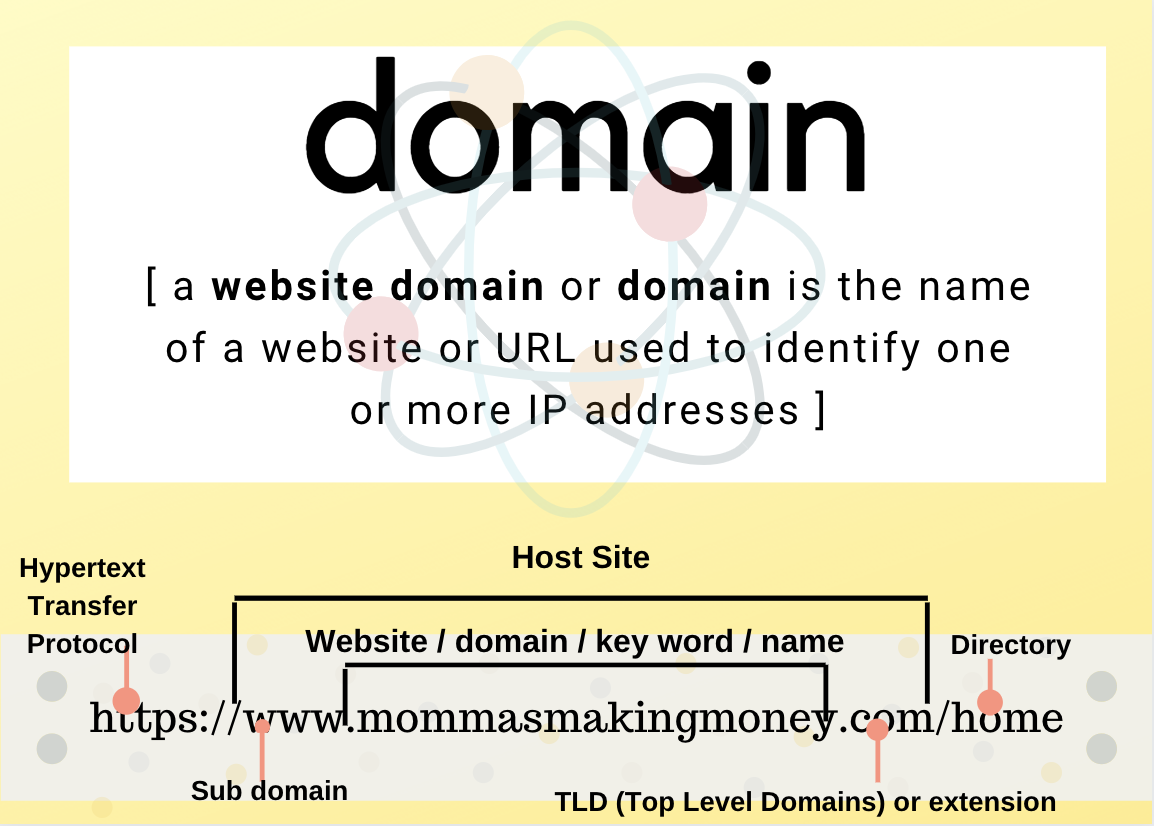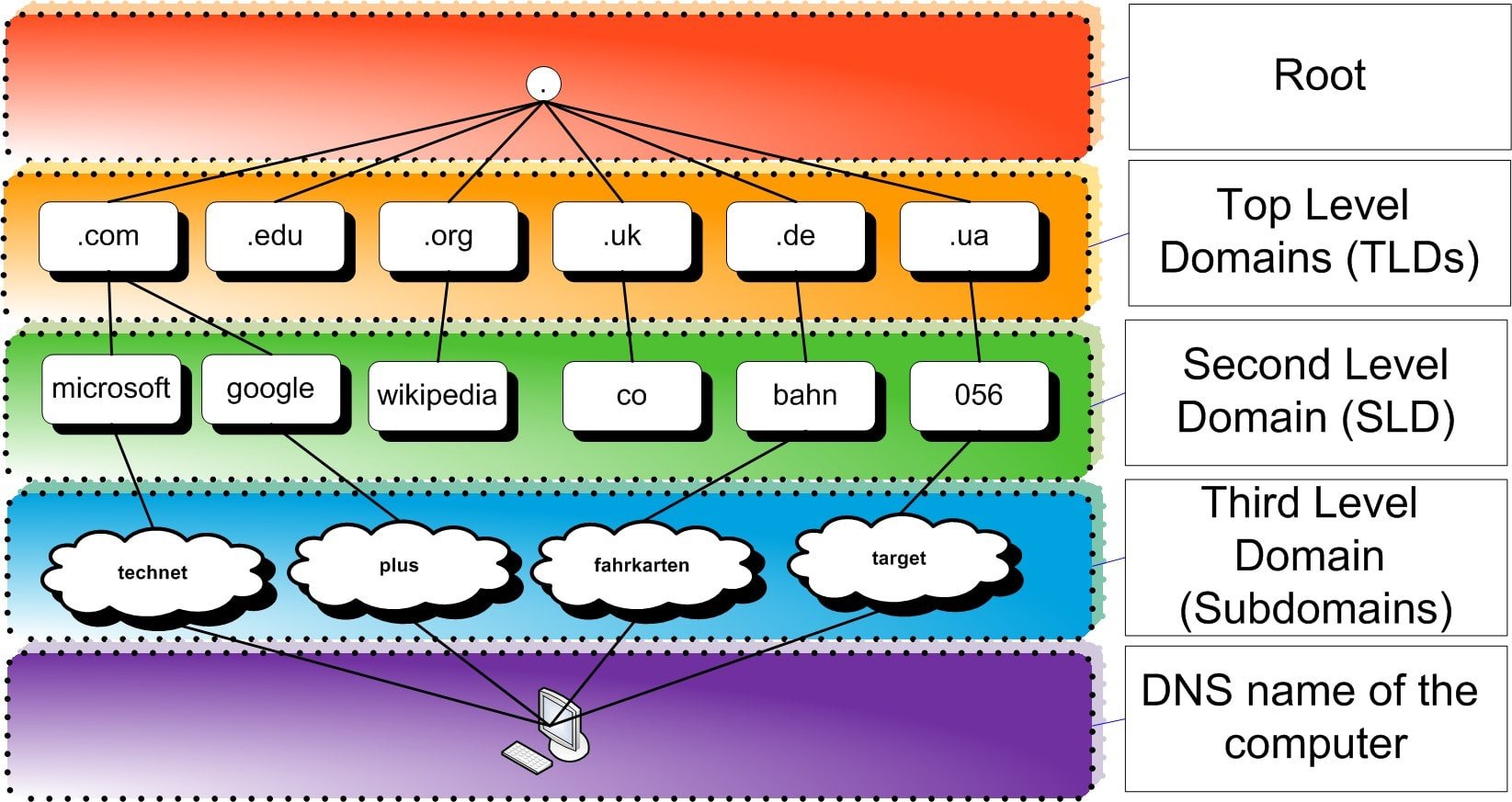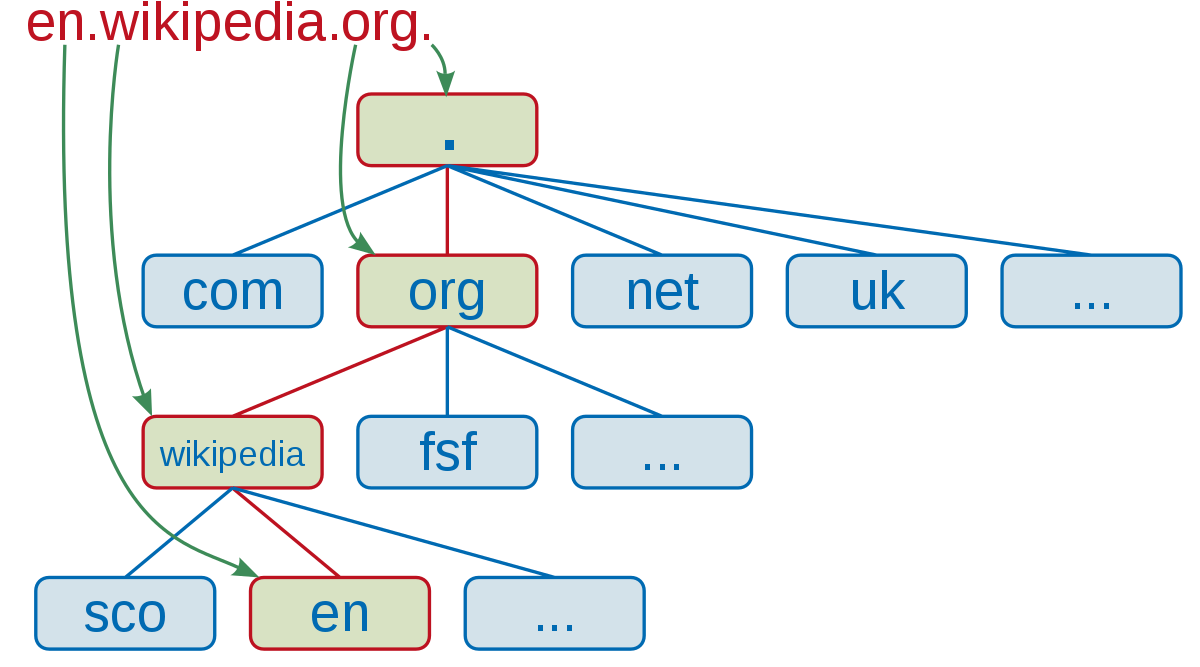What Is A Domain Name
Domain names are the letter counterparts of an IP address. Every device connected to the internet has a unique IP address assigned to it, which is used by others to send and receive data. A domain name can represent a single or multiple IP address.
For example, Monovms IP address is 104.20.20.40, However, it would be difficult for a person to remember it, so instead of remembering the IP address, you can type our domain name, which is monovm.com, in order to open our website.
Domain names are also beneficial for your audience/visitor to identify your website on the internet. Apart from it, they can use the domain name to visit the website directly. Hence it is good to have an easy domain name as it helps visitors to find easily the website. The difficult domain name can easily impact your website’s traffic and visibility because it will become hard for visitors to find over the internet. Now let’s have a brief description of the history behind the domain name.
There’s Also A Custom Email
Want an email address like ? To get such a slick, personalized address, you’ll need to reserve the domain first, then attach it to email hosting. This is a smart move especially if you’re running a business site. That way, your customers can remember as easily as they remember you.
And, if you need email hosting, check out
Use In Web Site Hosting
The domain name is a component of a uniform resource locator used to access web sites, for example:
- URL: http://www.example.net/index.html
- Second-level domain: example
- Hostname: www
A domain name may point to multiple IP addresses to provide server redundancy for the services offered, a feature that is used to manage the traffic of large, popular web sites.
Web hosting services, on the other hand, run servers that are typically assigned only one or a few addresses while serving websites for many domains, a technique referred to as virtual web hosting. Such IP address overloading requires that each request identifies the domain name being referenced, for instance by using the HTTP request header fieldHost:, or Server Name Indication.
You May Like: What Is The Domain For A Website
Examples Of Domain Name In A Sentence
domain name BostonGlobe.comdomain name Varietydomain name Washington Postdomain nameForbesdomain nameoregonlivedomain name Forbesdomain name EW.comdomain name Glamour
These example sentences are selected automatically from various online news sources to reflect current usage of the word ‘domain name.’ Views expressed in the examples do not represent the opinion of Merriam-Webster or its editors. Send us feedback.
How Do I Find A Domain Name For Myself

Hostinger offers a domain name search tool to help you find a suitable domain. Simply enter a domain name of your choice in the search box and press Enter. Our system will then display a list of available TLDs or extensions based on your suggestion.If your preferred domain name is already registered, choose another extension or try coming up with different variations using your brand name. Once you find your unique domain name, you can claim it by proceeding with domain registration.
Read Also: How To Create A Domain Email With Gmail
Differences Between A Domain Name And A Url
While a domain name and a URL share some similarities, they refer to different things. A URL acts as a complete website address that can direct visitors to a specific page on a site. A domain name is just a part of it.
A URL consists of a protocol, a domain, and a path. The protocol shows whether a site has an SSL certificate. Keep note that URLs have a path only when they direct visitors to a specific page on a site.
The Difference Between A Url And Domain
A websites URL will always include the sites domain name. However, as you can see, there are several other sections of the URL that are required to access any resource or page of a website.
The domain name directs users to the homepage of the website, and it wont include the protocol, file name, directory or subdomain if one exists.
While there is only one domain name for a website, there can be an endless number of URLs.
Every page, image and other media on your website has a unique URL. As the name suggests, Universal Resource Locators are used to pinpoint and render your websites unique assets.
You May Like: How To Create Custom Domain
Techopedia Explains Domain Name
Domain names are used worldwide, particularly in the world of networks and data communication. The following points explain how they work and how they are used:
- Domain names have two parts that are separated by a dot, such as example.com.
- A domain name can be used to identify a single IP address or group of IP addresses.
- A host or organization may use a domain name as an alternate IP address because domain names are alphanumeric , making them easier to memorize.
- A domain name is used as part of a URL to identify a website.
- The part that follows the dot is the top level domain , or group to which the domain name belongs. For example, .gov is the TLD for U.S. government domains.
- The IP address in the domain names background is converted to a recognizable, alphanumeric domain name by a system known as the domain name system .
Who Owns A Domain Name
A domain name is legally owned by a domain registrant. Whenever someone registers a domain name, the registrar will gather the registrants personal information and submit it to the WHOIS directory.With that in mind, if you register a domain name, you automatically become the registrant and will continue being so as long as you renew the fees.
Also Check: How To Transfer Squarespace Domain To Godaddy
Truth In Domain Names Act
In the United States, the Truth in Domain Names Act of 2003, in combination with the PROTECT Act of 2003, forbids the use of a misleading domain name with the intention of attracting Internet users into visiting Internet pornography sites.
The Truth in Domain Names Act follows the more general Anticybersquatting Consumer Protection Act passed in 1999 aimed at preventing typosquatting and deceptive use of names and trademarks in domain names.
Why Do You Need A Domain Name
Any business, organization or individual striving to establish online presence should own a domain name. A combination of a domain name, website, and email addresses forms your unique identity online. That, in turn, helps your business create a professional look, increase brand awareness, build credibility, and protect your trademarks and copyrights.
Also Check: Does Shopify Provide Domain Name
Registering A Domain Name
Registering a domain name is a lot like copyrighting the name of your business: You’re staking out your own piece of online real estate that no other business can use. Once youve registered a domain name, you can then create a website to live at that address and host it on any server youd like.
Here are a few tips to remember when selecting a domain name for your business.
-
Include either your business name or some relevant keywords. Make sure folks know exactly who you are or what type of products you offer. Plus, the use of keywords makes it likely to rank higher in search.
-
Include your location. Adding a location to your businesss domain nameespecially if you only operate in one particular marketcan help you rank higher in search results.
-
Avoid numbers, dashes, or hyphens. Simple names are easier to remember and can spread more quickly via word of mouth.
-
Make sure youre the owner and the administrative contact for your domain. Domain names are like propertyyou can only transfer them if they belong to you. Make sure youre the primary contact for the site so no one else can claim ownership without your knowledge.
-
Renew the registration on your domain name every year. When domain names expire, they can be claimed by anyone. This can be a big problemespecially if youve already spent years building your business around that domain. To avoid this, consider paying up front for multiple years of registration and setting your account to renew automatically.
How Do I Find A Good Domain Name

How much thought do you need to give to a domain name when you want to create a website? In theory, with a good website, users should visit your pages whatever the domain name…but it is a little more complicated than that. If you are part of a business, it is crucial to choose a domain name that is right for your business or brand.
Also Check: How To Make Money Buying Domains
What Is The Difference Between A Domain Name And A Website
A domain name refers to the address of a website. It is what people enter in the URL tab of their browsers to access a website. On the other hand, a website is made up of a collection of files, pages, data, and images. It is what people see and interact with from their browser screens.The bottom line is that one cant create a website without registering a domain name. Similarly, purchasing a domain doesnt automatically give you a functional website. If you want to use your domain name for a website, you will first need to build the website and connect it with your domain name.
Gtlds: Generic Top Level Domains
A generic top-level domain is an extension that does not rely on a country code. There are no specific criteria to get a gTLD. However, some extensions are sponsored by designated agencies or organizations.
Some generic TLDs are restricted to specific types of registrants. For example, an academic institution can use .edu, and a governmental agency can use .gov. If your domain does not fall under particular categories or institutions, you will not be able to use the extension.
Read Also: How To Point My Domain To My Website
Domain Name Syntax Internationalization
The definitive descriptions of the rules for forming domain names appear in RFC 1035, RFC 1123, RFC 2181, and RFC 5892. A domain name consists of one or more parts, technically called labels, that are conventionally concatenated, and delimited by dots, such as example.com.
The right-most label conveys the top-level domain for example, the domain name www.example.com belongs to the top-level domain com.
The hierarchy of domains descends from right to left each label to the left specifies a subdivision, or subdomain of the domain to the right. For example, the label example specifies a subdomain of the com domain, and www is a subdomain of example.com. This tree of subdivisions may have up to 127 levels.
A label may contain zero to 63 characters. The null label, of length zero, is reserved for the root zone. The full domain name may not exceed the length of 253 characters in its textual representation. In the internal binary representation of the DNS the maximum length requires 255 octets of storage, as it also stores the length of the name.
How To Transfer A Domain Name
Domain names can also be transferred between domain name registrars. Though there are a few special conditions that must be met:
While it is not mandatory to transfer your domain, having all services in a single place can greatly simplify the management process.
Here on Hostinger, you can perform a domain transfer from any domain name registrars. The process can take somewhere between 4-7 days to be fully completed. However, our dedicated customer success team will be there to assist every step of the way.
Also Check: Where To Buy My Domain Name
What Comes After Picking The Right Domain Name
Understanding domain names and the ancillary components are important steps when deciding on the perfect domain name.
Its not enough to know what a domain name is you need to understand why the domain name can help you grow your business and how to register that domain name.
The detailed guide above should provide the clarity you need to differentiate between the domain name and your website or URL.
In addition, you should now know the unique levels of a domain name and the meaning of various domain extensions.
Finally, you should have a better understanding of the domain name system , the differences between the registry, registrar and registrant, as well as the legal components associated with domains and websites, and the importance of domain names for businesses.
If youre ready to take the next steps with choosing and registering your domain name, see below:
What Was The First Domain
The first Internet domain name “symbolics.com” was registered by Symbolics, a Massachusetts computer company on March 15, 1985.
When deciding on a domain name, its a good idea to keep it simple, something that is easy to remember. Additional promoting tips for websites is on our guide to promoting your content on the web. To register or look up a domain name, we recommend visiting GoDaddy or Network solutions both companies are domain name registrars.
Also Check: Is There A Mail Com Domain
Waiting Time For Domain Names
Despite the current focus on automation and efficiency, a domain name won’t be available for use straight away after the purchase is complete. It might take anywhere from a few hours to several days for a domain to be propagated. This means that the domain name registry must first be updated with your website’s DNS information before it could be put to use.
Although some registrars promise to have your domain name registration instantly, the actual waiting time might take seven business days not more than this. Such a long wait period is typically not the case, and usually, domain names are up and running on the internet within two days, however, do not be alarmed if it takes longer.
Difference Between A Domain Name And Web Hosting

Going back to the start of this article, if the domain name is like your physical address then web hosting is like the physical building and the contents stored within.
Domain names are used to create a handy little shortcut to link what visitors type into an address bar to the server thats used to host the website. Theyre entirely digital and stored in a centralized database.
Hosting is a little different because it requires a physical server thats located somewhere in the world and connected to the internet. Its essentially like a computer hard drive that stores all of your websites files and databases. Its called a server because it literally serves your website to your visitors.
When you type a URL into your web browser, it sends a request to the specific server that your site is hosted on. The server then uploads the files and transmits them across the internet to the device that youre using, which downloads the files and displays them. Feel free to have a look at our more detailed guide about domain vs hosting relationship.
Read Also: How Much To Buy A Domain On Wix